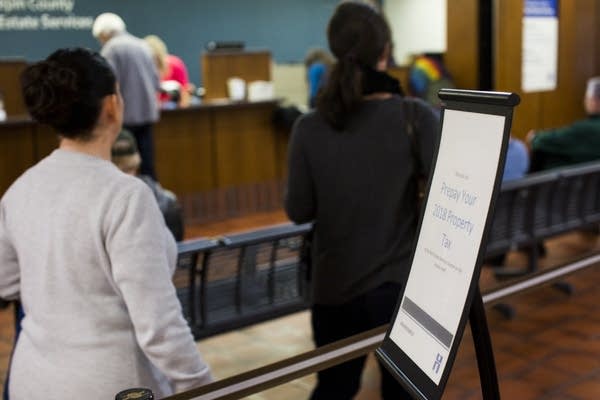Did paying property taxes early aid 2017 returns? We still don't know

A sign posted in front of the the Hennepin County Government Center's real estate service desk informs people that they can prepay their 2018 property taxes in Minneapolis on Thursday, Dec. 28, 2017.
Evan Frost | MPR News 2017
Go Deeper.
Create an account or log in to save stories.
Like this?
Thanks for liking this story! We have added it to a list of your favorite stories.


